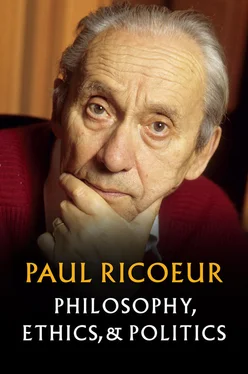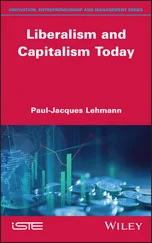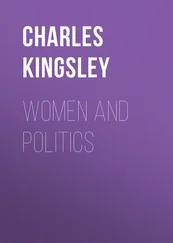Bloom, it seems, charged Rawls with a lack of education. 9French philosophy, however, has difficulty exiting two impasses: rereading the classics, with the intent, to be sure, of understanding them better and better; and, on the other hand, an inability to take on new subjects. The question is endlessly posed whether philosophy is dead, whether philosophy is possible for itself; one cannot endlessly do the philosophy of philosophy, but must move beyond this to think about something, breaking with this aspect of commentary and marginal notation, even in the strong sense that Derrida has given to the word “margin,” but which always amounts to writing in the margin of the greats.
And yet, this was the intention of phenomenology at the outset?
Indeed, it was a matter of placing oneself before specific objects and phenomena in order to ask oneself on a domain-specific basis about ways of positing something, without positivism. The lack of concern for ways of positing things disturbs me in contemporary French philosophy: it leaves the field open for an epistemology that adopts what others have posited. A glaring example of this today is Granger, who declares that philosophy has no object, only sciences have an object. 10I believe that we have to rediscover an object. For example: what does it mean to be a living being in the world – acting, suffering, speaking? I would defend the idea of a philosophical anthropology, which is often treated with disdain, in particular by those heirs of Heidegger who condemn an anthropological reading of Heidegger. On the contrary, what I find great in Heidegger is his philosophical anthropology.
Is there not, however, a positive aspect in the critique of the non-thematized philosophical anthropologies at work in the human sciences, for example in Lévi-Strauss and Piaget? These are anthropologies of “neuronal man,” postulating a fundamental reductionism.
Yes, but how can one denounce reductionism, unless one can present in opposition to it certain irreducible ways of positing things? However, what I am more critical of is not so much the idea that man is dead, but its counterpart: that man is recent. In Aristotle’s Nicomachean Ethics , books III and IV sketch out a philosophical anthropology that aims to show how the ethical and political capacity of human beings is ontologically possible. What sort of being must a human being be to be capable of decision, and so to be a political subject as well? A political philosophy constructed on an anthropological void seems to me doomed to be purely procedural: its sole political theme is then procedural coherence, something with which Rawls, precisely, has been reproached. But Rawls’s argument is also based on what he calls “considered convictions”: these rest, I think, on a certain invariant in ethical formalism. There are common convictions: we have always known that a person is not a thing, and the philosopher’s responsibility is to say what the differential features are that make a person worthy of respect simply by being a person. When you look at current questions in medical ethics, they demonstrate the fruitfulness of Kantian formalism in reflecting on these problems.
I am wary of the Hegelian idea that the moral principle should be replaced by Sittlichkeit under the pretext that the former is empty. And what if the latter is corrupted? Sittlichkeit did not prevent the advent of Nazism: what resisted was the upright Moralität of some people, like Bonhœffer and others, based on a certain idea of human beings. From this point of view as well, I would break with the Heideggerian idea that there is a single metaphysics and that it has ended. I believe, on the contrary, that there have been metaphysics in the plural, and that we have always had to choose our camp. I see nothing outmoded in the philosophy of the past. There have been various positions, open to unexpected Renaissances: who could have thought that Europe in the twelfth century would be Platonic? I am waiting for the Renaissance.
Do you cross paths here with Levinas’s reflection?
I owe much to him, but resist two points: first, the idea that ethics is to be developed without an ontology (a pretext stemming from Heidegger, and perhaps, beyond Heidegger, from Nietzsche). I am indeed not sure that the idea of being has to exhaust itself in a synoptic, virtually totalitarian, representation – in any case, one locked around the Self and requiring that the Other break in to enter. Isn’t there a possible ontology of act and power? Is there no way of reworking a miscarried ontology such as this? The philosophical tradition preserves certain clues, certain promises in this regard, for example in Spinoza’s conatus , or Leibniz’s dynamism, or again in Schelling. Ontology must not be aligned with substance or with essence. Vacant and incomplete ontologies can be appropriated for ethical alternatives and joined to problematics of otherness like that of Levinas.
The second resistance stems from the fact that the primacy of otherness is pushed so far by Levinas that it tends to remove all consistency from the “I.” When Levinas says that responsibility requires absolute passivity from me, that I am the receptor of an act that is not mine, and that this passivity must not turn back into action, with my becoming once again the master, to be sure, he forces us to think by moving the needle to the other side, in opposition to Husserlian egology. But if there were not in subjectivity the capacity to initiate, how could the response come: “Here I am”? How could the other awaken in me the ability to respond, if there were not in subjectivity a sort of latent capacity for acting? And this leads us to the Kantian antinomy: what is a subject capable of acting? These are my points of resistance when I read Levinas. At the same time, they express my debt. I too struggle against the idea that I am the master of sense. I have written about this, speaking of the “wounded cogito .”
In addition, I perceive in many French philosophers the tendency to dismiss the human sciences, which seems dangerous to me; when philosophy exiles itself from established sciences, it can then be in dialogue only with itself. Now, all the great philosophies have been in dialogue with a science: Plato with geometry, Descartes with algebra, Kant with physics, Bergson with evolution. For a philosophical anthropology, its partners are the human sciences. The established sciences are too quickly cast aside with an antipositivist argument, which is turning into a lazy argument. One has to earn the right to respond to arguments one judges to be positivist. If all we have to offer is the self-destruction of philosophy, we leave the field open for positivisms; today we see scientists forced to come up with a provisional philosophy, because philosophers are deserting the philosophical object. This worries me: I see in this retreat at once an arrogance and an excessive modesty. I am shocked by statements like those that open the work of Lacoue-Labarthe for example, 11on the impossibility of continuing philosophy.
The discourse of ethical nakedness in Levinas, on the one hand, and the discourse of the end of philosophy on the other, leave a void in the middle, allowing the sciences to take up the themes abandoned by philosophy.
Indeed, there are objects that are totally forsaken, even by analytical philosophy, outside the domain of epistemology. For example, the object of the historian: what is a past being? This seems to me a philosophical question, since the past is not something observable nor is it a fiction: so, what is its status? What is “having been” for an event of which we continue to speak? What is at stake is the ontological status of the past as such. I attempted to treat problems of this kind in Time and Narrative , and I don’t see why they would have become obsolete through the recent death of a type of discourse. Or then we’ll have to find another line of work. If we moan about the falsification of language, then we have to say what an unfalsified language would be. If we criticize the domination of technology, then what would constitute a restored relation to nature? I find myself opposed both to those who say philosophy is dead and take this as their thematic, and to those who, like Levinas, say that one must develop a philosophy without any thematic. My conviction is that Levinas is saying something else. The type of discourse he makes possible by his refusals is as important as what he attacks. He restores another space in which one can again speak of the “I,” of the self, of identity, in a discourse that can draw support from Anglo-Saxon works devoted to personal identity. Examples: Is identity what is unchanging? Do selfhood ( ipséité ) and sameness overlap? What does the second person signify if not that it is capable of saying “I” for itself? Here, we are straightaway in a debate with linguistics, with the theory of deictic functions, of self-referential meanings, or further with the intensional/extensional distinction. Linguistic instruments are entirely appropriate for these types of reflections, which otherwise are doomed to remain declarative or proclamative.
Читать дальше












